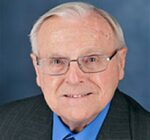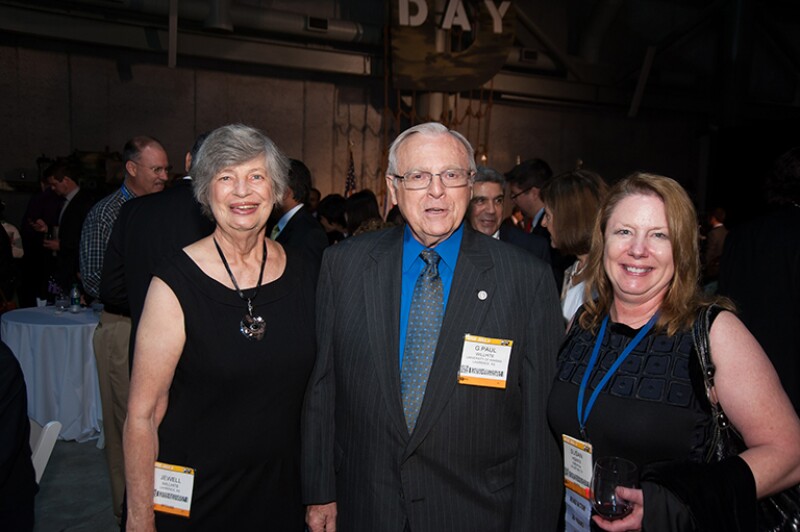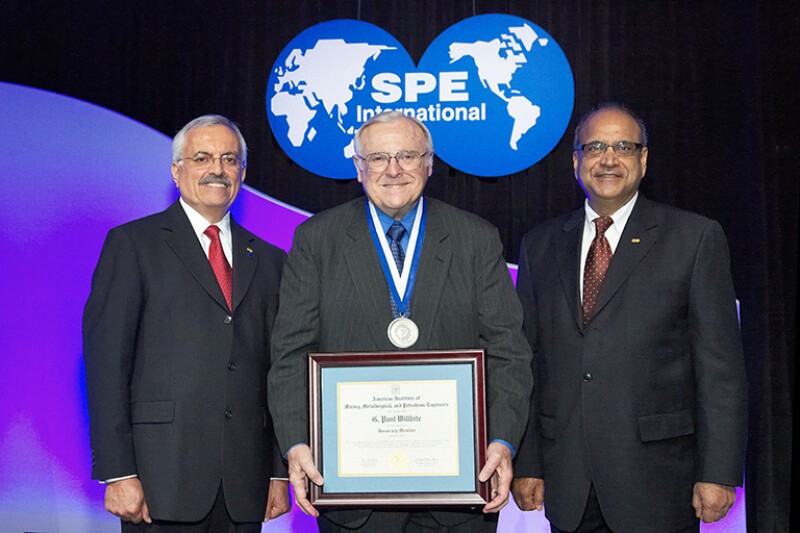
Glen Paul Willhite, SPE, former Ross H. Forney Distinguished Professor of Chemical and Petroleum Engineering at the University of Kansas, died 15 December 2022. He was 85.
Willhite earned a BS in chemical engineering from Iowa State in 1959 and a PhD in chemical engineering from Northwestern in 1962. He began his career in 1962 when he accepted a position as a research scientist in the production research division at Continental Oil Company in Ponca City, Oklahoma, where he worked for 7 years before joining the faculty at the University of Kansas (KU). His tenure at the university would span over 50 years teaching petroleum and chemical engineering courses before his retirement in 2019.
In 1974, Willhite founded and co-directed the Tertiary Oil Recovery Project (TORP) with KU Chemical Petroleum Engineering Professor Don Green. The program was designed to acquaint Kansas producers with the technical and economic potential of enhanced recovery methods for oil and gas fields that were applicable for independent operators in Kansas and throughout the region.

The major research program was directed at the problem of high rates of water production resulting from waterflood-injected water channeling through high-permeability zones in the reservoir and bypassing oil in zones of lesser permeability. Under Willhite’s guidance, TORP investigated injecting polymers and/or gelled polymers into the reservoir to reduce the permeability of these zones. The research contributed significantly to an understanding of the process and provided information that was important in the design. These polymer systems have been widely used in Kansas, other states, and around the world.
Technologies developed by Willhite and Green at TORP were capable of increasing oil production when the US needed incremental oil as the main source of energy. The project also developed a strong outreach/technology transfer aspect that later became a model for other programs across the country.
An SPE member since 1962, Willhite authored 97 technical papers. He was also the author of SPE textbook, Waterflooding, and a coauthor along with Green of SPE textbook, Enhanced Oil Recovery.
He served on the SPE Education & Accreditation Committee and SPE Improved Oil Recovery Conference and SPE Improved Oil Recovery Symposium program committees. He served as the chairperson for the SPE Improved Oil Recovery Symposium in 2007–2008 and was an associate editor for the SPE Journal.
He received the SPE Distinguished Achievement Award for Petroleum Engineering Faculty (1981), SPE Lester C. Uren Award (1986), SPE Distinguished Membership (1987), SPE John Franklin Carll Award (2001), and SPE Honorary Member (2012), an honor given to only 0.1% of the membership. He also received the IOR Pioneer Award at the 2004 SPE/DOE Improved Oil Recovery Symposium. He was elected to the National Academy of Engineering in 2006.

He was a member of the American Institute of Mining and Metallurgical Engineers. For more than 25 years he served as a program evaluator for ABET, which accredits post-secondary education programs in engineering and related fields nationally. Willhite was a past member and former chair of the Department of Chemical and Biological Engineering’s Advisory Council, a consortium of experts that help guide the department’s undergraduate and graduate curriculums. He was part of the department’s inaugural class of inductees to its Hall of Fame in 2013.
2021 SPE President, Tom Blasingame, remembers his relationship with Paul throughout their 31-year friendship. “My first encounter with Paul Willhite was at the 1991 SPE Colloquium on Petroleum Engineering Education—and ironically, my last encounter with Paul was at the 2022 SPE Workshop on Petroleum Engineering Education (basically the same meeting, 31 years later). What happened in between was my entire academic and professional career.
“Paul was an exceptional mentor and outstanding role model to many of us. He gave us support and candor, but in my opinion, his greatest strength was that he liked and cared about everyone, especially the ‘younger generation’ (which, of course, included me).
“Everyone thinks about a friend’s passing in the context of where did we first meet, what were our best moments, and what did we both contribute to the relationship? With Paul it was easy—when I was young, he gave me a chance—especially with things like SPE service, but also treating me as a colleague when I was barely out of school.”

